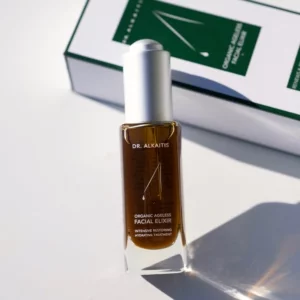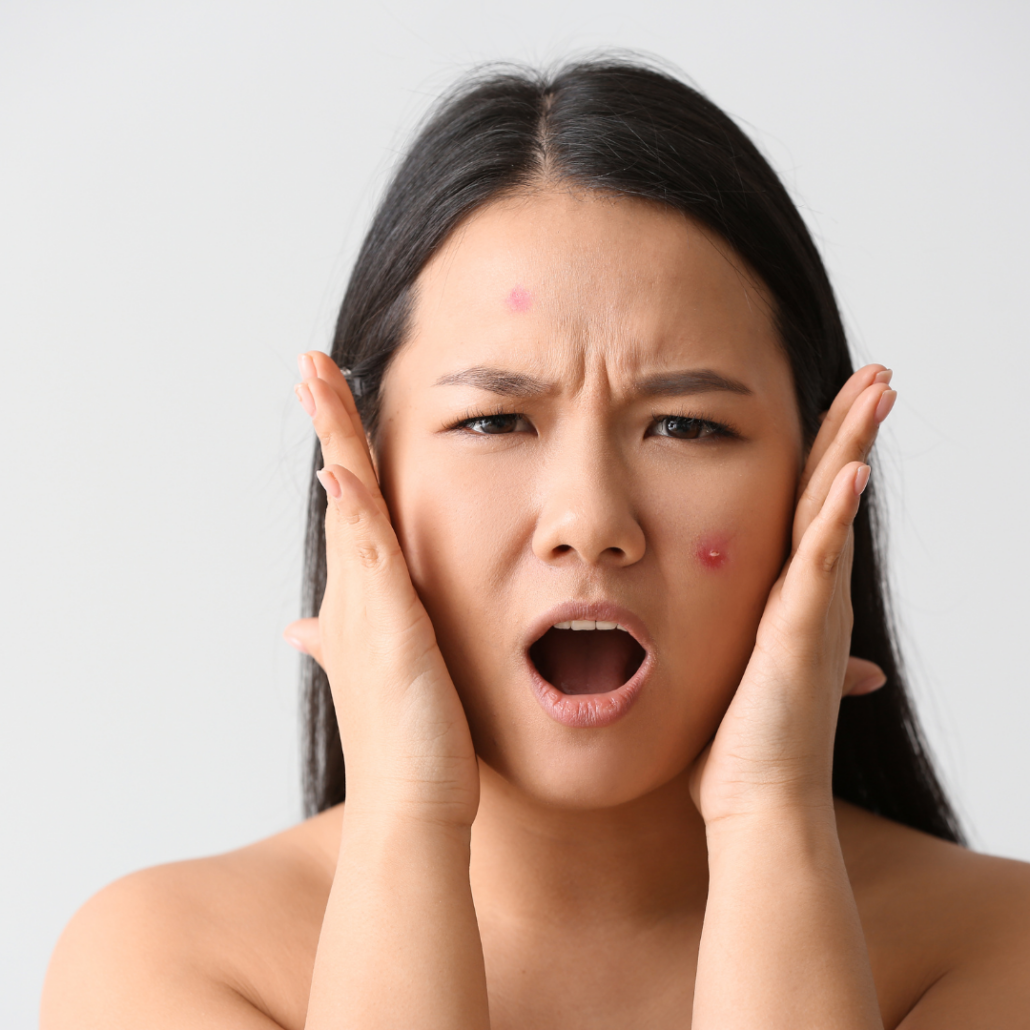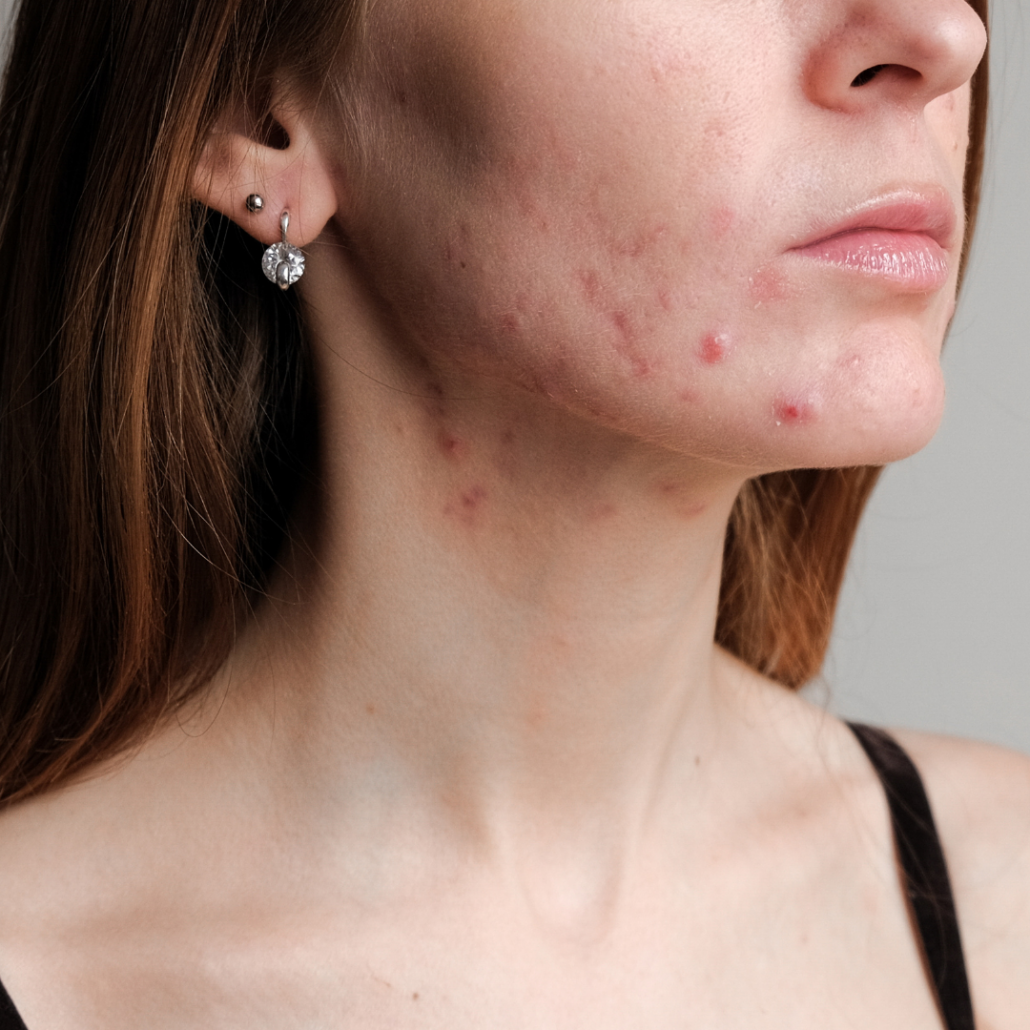Functional Aesthetics 101
/in EMA Spotlight, Laser and IPL, Personal, Services /by Mary Beth MartinIntroduction
Many of Elite’s staff members, and our clients, have gone through healing journeys with a functional medicine approach, and have found that treating the body as a whole, and addressing underlying causes, improves skin health, too. It’s all connected. You can’t fully treat the skin without addressing the whole body.
What we do at Elite is termed “functional aesthetics”; which means, addressing the root cause of skin concerns and not just treating symptoms, such as: pre-mature aging, thin/crepey skin, acne, rosacea, liver spots, eczema, etc.
Common “functional aesthetics” services you may see on social media, like: IV therapy, weight loss medication, and hormone replacement therapy (HRT) can make people feel great temporarily, but they do not directly address, nor cure, the root cause of common health and skin issues. (Which is exactly what functional medicine does 😉).
True functional medicine in aesthetics addresses the whole person, individually, by looking into lifestyle changes, diet, gut health, hormone imbalances, inflammation, cortisol spikes, stealth infection like infections/parasites, stress levels, and much more! Typically when there is health/skin issues it is rarely caused by one thing and/or fixed by one thing. The body is very interconnected, so it can be complex, takes time, and may need attention from a professional in the functional medicine field.
📕 Keep reading below to learn more about:
- Functional medicine and how it is being used in the world of aesthetics
- Red flags to watch out for in med spas who claim they are “functional” and “holistic”
- How our office implements functional medicine, and more!
Table of Contents
What is functional aesthetics?
Functional aesthetics is a combination of both:
1. Functional medicine: an integrative practice that addresses the root cause of illnesses/health issues rather than treating only the symptoms.
2. Aesthetic medicine: looks at a person as a whole and utilizes appropriate skin treatments, therapies, and (clean) injectables to help people feel and look their best.
An example of this might look like:
-A client comes in with severe acne and our providers talk about their gut health, hormone health, and stress levels and how these things contribute to the formation of acne. The provider formulates a functional medicine and aesthetic treatment plan that:
1. Diet and lifestyle changes that address common root causes of acne
2. A customized treatment plan to help the acne heal faster that may include topicals at home and VI Peels and/or IPL in the office. Later, once lesions are healed, we would add on microneedling or lasers to address any scars.
3. Potential supplemental IV therapy to help the body detoxify while it is healing
This is a 360 approach to healing the acne with a functional aesthetic approach, rather than only prescribing pills or topical ointments.
💜 Lastly, addressing underlying conditions before agreeing upon a treatment can save clients from adverse reactions! (aka they put you and your health first, and aren’t afraid to say “no”).
What are common functional aesthetic treatments?
Common aesthetic treatments that are being be classified/marketed as “functional” may include therapies/treatments like:
- IV therapy
- Hormone replacement therapy (HRT)
- Weight loss management, such as Ozempic/Semaglutide injections
These treatments alone do not fully address root causes of symptoms within the body, however they can have a “time and place” during the healing process and may have overall health benefits. Most importantly, if a practitioner jumps to these treatments without addressing things like:
- Diet, lifestyle, stress, gut health, detox pathways, sleep issues, hormone imbalances, etc. they are not practicing functional medicine, they are prescribing a “quick fix”, or simply selling add on treatments, that only help temporarily.
- Of note: if this is what you are looking for, or what your clinic does, that is cool too, but it is important to not sell/advertise it as functional medicine.
What is Hormone Replacement Therapy (HRT)?

Hormone replacement therapy is a treatment used to help relieve hormonal symptoms temporarily, usually associated with the transition to menopause (*more below), but can be used with other hormonal imbalances, too. Synthetic hormone pellets are medically placed into the buttock region and slowly release targeted hormones into the body. Overall, this treatment is designed to replace lower levels of female hormones.
Is Hormone Replacement Therapy functional medicine?
In our opinion, hormone replacement therapy (alone) is not considered functional medicine. While this is a commonly used intervention for unwanted hormone symptoms, it comes with side effects and does not fully address, or fix, the underlying cause of the hormonal imbalances to begin with. PLUS, even though appropriate HRT treatments run blood work labs, these labs only indicate the imbalance(s), not what is causing those imbalances.
🌱 A holistic and functional med approach to hormone regulation might look like:
- Someone balances their body naturally through addressing gut health, sleep, stress, detox pathways, etc. and is still showing imbalanced hormone levels. In this case, HRT COULD potentially be a beneficial treatment, in conjunction with the lifestyle changes, while the body continues to heal. And this approach would require a lot less of the synthetic hormones than if it was the first, and only, treatment option offered for the hormone issues.
- *Note: we understand that menopause is a “root cause” of hormone imbalance for women, but all of the side effects of menopause, though common, do not mean they are normal. Meaning, that many symptoms of menopause can be treated naturally, and then if hormones are needed, less can be used.
- When possible, we also always advocate for bioidentical hormone replacement therapy over using synthetic hormones.
What are weight loss Injections?

Common weight loss management injections, Ozempic & Semaglutide, help to lower blood sugar by assisting the pancreas to make more insulin. This process causes the body to feel less hungry and thus, lose weight due to a suppressed appetite. These injections are originally used for type 2 diabetes, but are now used for many alternative reasons, even for those without a diagnosis, to lose weight quickly.
Are Ozempic injections functional medicine?
No, weight loss injections such as Ozempic are not considered functional medicine because they do not address the underlying causes within the body that is making people struggle with losing weight. These type of injections are proven to be a “band-aid” fix to weight loss because once someone stops getting the injections, the weight comes back (especially if someone is not implementing diet and exercises changes while on the medication).
Additionally, there are many unwanted side effects with weight loss injections such as gut issues, severe heartburn, hormonal imbalances, thyroid issues including cancer, and chronic inflammation which can make people feel even worse and lead to other issues within the body (like a domino effect).
*Of note: this medication is intended for type 2 diabetes and can be a beneficial medication for those with type 2 diabetes or other health complications associated with obesity. Always consult with your practicing provider about any medication use or questions.*
🌱 A holistic and functional med approach to weight loss might look like:
- Working with a specialist on lifestyle interventions, mental health/food addiction, eating a customized diet, following an exercise plan, and running necessary tests to see WHY the body is not able to naturally lose healthy weight. Then, following that treatment plan for “X amount of time” to see how the body responds. Many people tend to feel better when they take this approach to weight loss, overall and see other health benefits as well! Plus, it is a long term solution to weight loss rather than a quick fix that might not provide lasting results.
What is IV Therapy?

IV Therapy is a medical procedure that delivers fluids, medications and vitamins/minerals into the body directly through a vein. Many aesthetic clinics use IV therapy to give clients “cocktails” of vitamins/minerals to help support anti-aging, healthy hair and skin, and nail quality. While medical IV’s are used to administer medications and fluids quicker to the body for several reasons.
Is IV Therapy functional medicine?
IV therapy itself, is not functional medicine, but it can be a supportive tool to administer vitamins and minerals that are needed for the body to heal or detox. Again, working with a functional med expert is the first step to addressing the issues within the body to know what exactly is out of balance and needs attention. Without diving deeper into the root cause(s), getting an IV full of vitamins and minerals that the body doesn’t need is not totally beneficial, and can be expensive!
🌱 A holistic and functional med approach to IV therapy might look like:
Working on gut health and detoxing a sluggish liver that is causing an array of issues such as: acne, gut imbalances, and sleep problems, and getting an IV that contains glutathione to help further support the liver detox practices. IV therapy can work great in conjunction with functional med practices to give the body a boost, but knowing what the body needs is the first step to correctly and successfully getting the full benefits of an IV customized to you.
Please note that many clinics use cheap, synthetic vitamins in their IV infusions. Be sure to ask about what kind of vitamins they use, specifically methylated B vitamins vs synthetic B vitamins.
What is an example of functional aesthetics in a clinic?
An example of an aesthetic office practicing functional medicine may look like this:
- A woman comes in and has concerns about hormonal issues such as severe acne and melasma but also mentions that the fatigue, bloating, and irregular cycles are really bothering her as well.
Instead of prescribing hormones (HRT) right off the bat, the practitioner looks at the her as a whole (ie: her stress levels, diet, lifestyle, toxic load, gut issues, cortisol etc.) and suggests simple, yet effective, lifestyle changes to implement ASAP.
- They decide to wait on doing any type of treatments, besides a customized skincare routine to help manage acne and melasma topically, and refers her to a functional med specialist while explaining that unless she balances her body naturally her acne/melasma will not completely go away with topical skincare/treatments.
Is blood work considered functional medicine?
Running blood work is a helpful tool that can be beneficial with navigating how the body is functioning, but it isn’t the “end all, be all” of functional medicine. Functional medicine goes beyond blood work, in fact there are MANY tests that are helpful when taking a deeper dive into understanding the body such as a Dutch test, stool and urine test, HTMA test, etc.
🧘♀️ More importantly, functional medicine usually begins with implementing basic lifestyle and diet changes first (even before running tests or adding in supplements) because these lifestyle changes are the foundations to a healthier body and can make a huge impact, alone.
Additionally, most “normal ranges” for blood work testing is very broad, doesn’t always give a definitive answer, can showcase “normal levels”(even if there is something goin on), and can oftentimes be misleading. Keep in mind that normal labs doesn’t equal a healthy person. Even abnormal labs, or abnormal hormone levels on labs, don’t indicate what the root cause is of those abnormalities, it just simply shows that there’s something abnormal. There is a much more complex issue going on within the body that needs to be addressed and analyzed by a professional in the field.
Is "common" and "normal" the same thing?
The terms “common” and “normal” are not the same thing! In today’s society it is common to see women struggle with acne, painful periods, PMS, etc, but it is not normal. Our bodies are not supposed to experience these type of painful symptoms, and it is definitely not ok for them to be labeled or misinterpreted as “normal”. Oftentimes, these “common” symptoms are ignored when they should be listened to, because they are a way the body is communicating with you that something is off.
Functional medicine practitioners take a deeper look into “why” these symptoms are occurring and address the root cause(s) which is different for everyone. When someone is able to balance their body and address all functions (since they are all interconnected) many symptoms start to improve and lessen. This is healing from within, which takes time and more than a few HRT and IV therapy treatments like being marketed today.
Red Flags to look out for:




🚩 We have seen a trend of these common red flags in clinics/med spas that claim they are “functional” and “holistic” when in reality, they would not be doing or offering these things if they were truly practicing (or believe in) functional medicine:
- They offer you traditional soda, candy, processed treats and non-organic coffee in the afternoons
- The products that they use in their office and skincare products are filled with “parfum” and “fragrance”
- The providers immediately prescribe a pill or a “quick fix” without addressing potential root causes or referring you to a functional med specialist
Why do these things 👆 matter?
These details mentioned above matter greatly! If a clinic was truly practicing “functional aesthetics” then they would not offer these things, because they do not support a healthy body.
Read below for further explanation:
- Refined sugars, processed foods, seed oils, generic caffeine, and artificial dyes found in office “treats” and drinks contribute to: inflammation, hormone imbalances, skin issues such as acne, spiked cortisol levels, gut issues, and so much more. Instead, swap these generic/unhealthy things for organic, non-toxic options that are much healthier and do not contribute/feed inflammation and other issues.
- A lot of popular, name-brand skincare products, candles, and air fresheners that are used and offered in clinics contain “fragrance” and “parfum” which are endocrine disruptors and proven to wreck havoc on hormones.
- If a practitioner immediately defaults to prescribing a pill or a “quick fix” to band-aid symptoms without looking into root cause(s) or diving deeper into things like: detox pathways, stress levels, gut microbiome imbalances, toxic load, sleep issues etc. they are actually practicing the opposite of functional medicine, they are using Western medicine’s approach “pill for an ill”. Therefore, they cannot be claiming to be doing “functional medicine”.
At Elite, we take the time to educate our clients on why we do not offer or carry products like this in our office, that way they can be aware and make these changes in their personal lives, too.
How we do things at Elite Medical & Aesthetics:
At Elite, we find it is important that our entire office aligns with our beliefs on taking a holistic approach to not only aesthetics, but lifestyle too.
💜 Some of the key things we do in our office, and have done since we first started, include:
- Offering the cleanest products on the market for our clients when we do agree to do a procedure. We research and trial each product we offer to our clients to ensure it meets our standards and provides beautiful, natural results. If we wouldn’t use it on ourselves, we wouldn’t offer it to our clients.
- We have all natural treatment options such as NeoLifting, EZ-Gel injections, IPL/laser/peels, microneedling, and PRP/PRF. There are many natural aesthetic treatments that can provide beautiful results for clients.
- We refuse treatment, and refer out, when a case is above our level of functional med expertise. We are not afraid to say “no” to clients, which is part of our morals of being honest and truly caring about our clients and their well-being over an aesthetic treatment or money. We always say “people over profits”. 💜
- All of our office cleaning supplies are non-toxic. Because we are a medical office, cleaning happens multiple times a day, and therefore using quality non-toxic cleaning products and soaps is a non negotiable to keep our staff and clients safe from toxins and fragrances that many people encounter when using generic cleaning supplies.
- We only offer real, clean, organic drinks and snacks (and they are delicious too 😉). We opt for cleaner snack and drink brands such as Spin Drift seltzer waters, Unreal coconut chocolates, organic herbal teas, and always use filtered water for drinking. We also have organic, grass-fed beef sticks to accompany the chocolates to prevent a sugar crash.
How we practice functional aesthetics:
We take the time to look at each client as a whole and screen them thoroughly to rule out any possible underlying causes that might lead to adverse reactions with treatments. We also listen to clients and get to know them so that if there are symptoms associated with skin concerns we are educating them on ways to address it internally, too.
Here are some of the ways we practice this:
- We screen every client for underlying conditions and address these issues before doing ANY procedure. This is especially important because doing an elective aesthetic procedure on someone with a high histamine response, poor stress responses, sickness, etc. can increase the potential for someone to have an immune response or reaction to a treatment/procedure.
- We offer functional medicine consults and treatment plans. Ali, NP and owner is seeing clients for functional medicine cases and provides thorough treatment plans to help address underlying causes of unwanted symptoms. For advanced cases, we have a network of full-time functional medicine providers to refer out to.
- We educate on lifestyle changes and offer resources for change and a deeper dive into health and wellness. Our providers take pride in knowing enough information/research on functional medicine and how the body operates on a functional level to educate clients on basic lifestyle changes that can make a huge impact on people. This may include things like diet, exercise, gut health, hormone health, managing stress, and more.
- We talk about getting to the root cause, rather than just treating symptoms. Taking the time to explain to our clients about root causes and how they can take the right steps to feeling their best is important to us and crucial for total client care and safety. We do not offer “quick fixes” in our office.
- All of our skincare products are paraben-free, phalate-free, cruelty-free & fragrance-free. The number one toxin found in MOST skincare and beauty products is “fragrance”. It causes an array of issues within our bodies and hormones. Just because a popular brand name skincare product is on the market, does not mean it is the safest. Read more about this topic on our blog, by clicking the pink button below 👇















How we are educated on functional medicine:
Our entire staff takes the time to research and read about functional medicine practices so we can all educate clients throughout each encounter with us, from the initial phone call, to the procedure, and the follow up.
How do we hold ourselves accountable and do this?
- We have a monthly bookclub which has incorporated many books that focus on lifestyle and functional medicine practices/mindsets like: Dirty Genes, Hormone Intelligence, Good Energy and the Pegan Diet.
- Ali, MB and Kelsea have personally worked with functional medicine experts including women’s hormones and gut health expert, Marisa Faye, so they have personal experiences that they can attest to, speak upon, and explain the improvements and changes in their own healing journeys. This has been extremely relatable for clients and one another, and it is fun “healing together”, sharing progress, and new tools (we oftentimes geek out on this together 🤓).
- Ali, NP has completed functional medicine trainings and courses to help clients look and feel their best, naturally! Ali & Kelsea are currently working on functional aesthetic protocols for the clients in the office.
While we are able to help clients with functional aesthetics, and the core principals of functional medicine in general, for severe cases we will often refer clients out to full time functional medicine practitioners.
Is functional medicine complex?
Yes, functional medicine is very complex. It takes years of schooling and training for someone to be a functional med expert.
Not to mention that each case is different and takes different tools to understand and navigate through. Functional medicine is patient-centered, in-depth, and integrative on many levels and it takes dedication, commitment, and persistence before results start to show, both from the practitioner and the client.
That often is why it is common to see practitioners prescribing a pill or a quick fix, because people tend to feel better initially, but this feeling is only temporary.
Conclusion:
All in all, our providers at Elite are dedicated to help our clients feel and look their best with a combination of both aesthetic treatments and a functional medicine approach.
We offer an array of functional medicine services, natural treatments, and wellness services to compliment our holistic approach.
Learn more about these below!

Elite Medical & Aesthetics is a premier med spa located in Lone Tree, CO that takes a holistic approach for natural results. We pride ourselves in having an all nursing staff of NP’s that put safety as #1 priority.






